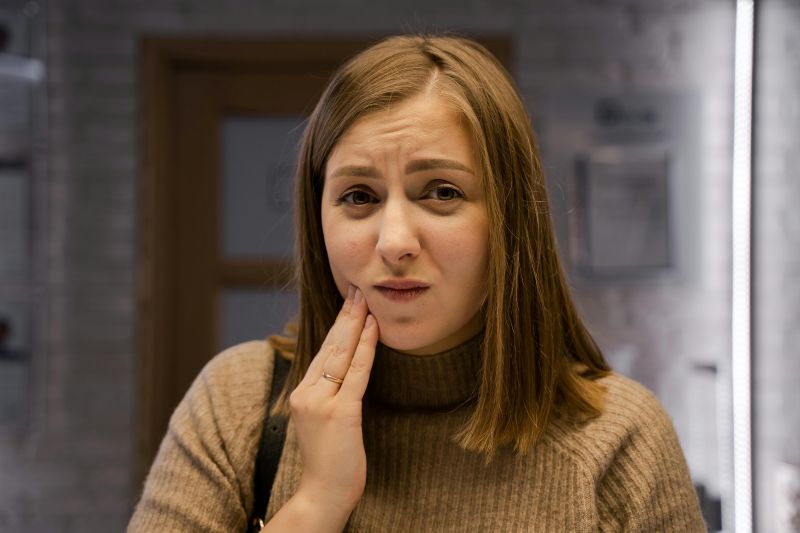
25 Jun When to See a Dentist for Tooth Pain During Vacation
When to See a Dentist for Tooth Pain During Vacation
You’ve waited months, maybe even years, for your dream vacation. You’re finally relaxing on a tropical beach or exploring a vibrant city. Then—bam! A sudden jolt of tooth pain ruins your entire vibe. Sound familiar?
Tooth pain during vacation is more common than most travelers expect. Whether it’s a dull ache or a sharp jab, dental discomfort can turn a dream getaway into a nightmare. This guide shows you when to seek professional help, how to handle emergencies, and what you can do before and during travel to protect your smile.
Why Tooth Pain Strikes During Travel
Tooth pain doesn’t care about your travel plans. In fact, certain travel-related factors can increase your risk of experiencing dental issues.
Common Triggers on the Road
Changes in diet — Eating unfamiliar foods, sugary treats, and alcohol can aggravate teeth.
Dehydration — Reduced saliva flow contributes to decay and gum issues.
Irregular oral hygiene — Skipping your nightly brush due to exhaustion or travel chaos.

Air Pressure and Altitude Effects
Flying can cause existing dental issues to flare up due to pressure changes. This phenomenon, known as barodontalgia, can make a minor cavity feel like a full-blown abscess mid-flight.
Red Flags: 11 Signs You Need a Dentist NOW
Here’s the deal: Not all tooth pain requires emergency treatment, but some symptoms should never be ignored — especially when you’re far from home.
1. Persistent Throbbing or Sharp Pain
If your pain lasts more than a day or keeps you from sleeping, that’s a big red flag.
2. Swelling in the Gums or Face
Facial or gum swelling may indicate an infection. Left untreated, it can spread.
3. Fever or Headache with Tooth Pain
Signs of systemic infection. Seek care urgently.
4. Tooth Sensitivity that Won’t Go Away
Sudden or severe sensitivity could signal enamel erosion or nerve exposure.
5. Cracked or Broken Tooth
A cracked tooth invites bacteria. It also might expose the pulp.
6. Foul Taste or Odor in Your Mouth
This often means pus is present — a dental abscess may be forming.
7. Bleeding Gums that Don’t Stop
Especially if spontaneous or unprovoked.
8. Pain When Biting or Chewing
Could point to an abscess or cracked root.
9. Exposed Nerve or Dental Work Damage
If you lost a crown or filling, bacteria have a direct path to the root.
10. Facial Numbness or Tingling
May indicate nerve involvement — potentially serious.
11. Jaw Lock or Trouble Opening Mouth
Signs of temporomandibular joint (TMJ) issues or severe infection.
First Aid Tips: What to Do Before Seeing a Dentist
- Rinse with warm saltwater.
- Apply a cold compress for swelling.
- Take ibuprofen or acetaminophen.
- Avoid chewing on the affected side.
- Use dental wax if a crown or bracket is loose.

OTC Pain Relief Options While Abroad
- Ibuprofen – great for inflammation
- Acetaminophen (Paracetamol) – good for general pain relief
- Topical numbing gels like benzocaine
- Clove oil – available at most pharmacies
- Check local pharmacy labels; names may differ by country.
Natural Remedies You Can Try
If you’re far from a pharmacy:
- Saltwater rinse
- Cold compress
- Chewing garlic – natural antibacterial properties
- Tea bags – tannins reduce inflammation
- Peppermint oil – mild numbing effect
When to Visit an Emergency Dentist
You’ll need emergency dental care if:
- Pain wakes you up or keeps you from eating
- There’s visible swelling or pus
- You’ve lost a tooth or large filling
- A dental device is cutting into your cheek or gums
- Use Google Maps or Emergency Dental Directory to find a clinic near you.
Dental Insurance & Coverage Tips for Travelers
Before your trip:
- Call your provider and ask about international coverage.
- Get travel insurance that includes dental emergencies.
- Carry copies of dental X-rays and recent records.
- Some credit cards even offer emergency dental reimbursement. Always read the fine print!
What to Expect from a Local or Tourist Dentist
Don’t panic — dental care abroad can be excellent, often cheaper too. Expect:
- Language barrier (bring a translation app)
- Payment upfront (keep receipts for insurance)
- Modern clinics in tourist-friendly regions
- Many countries offer 24-hour dental clinics, especially near resorts or major cities.
Preventing Tooth Trouble Before You Fly
Pre-Trip Dental Checkups
Always visit your dentist 2–4 weeks before your trip. Ask them to:
- Check for hidden cavities
- Secure fillings and crowns
- Evaluate wisdom teeth
- Provide a dental emergency guide
What to Pack in Your Dental Emergency Kit
- Floss and travel toothbrush
- Temporary dental filling material
- Dental wax
- Pain relievers
- Numbing gel
- Insurance info

Dental Tourism: An Opportunity in Disguise?
If you’re abroad and need major work, consider dental tourism. Countries like Mexico, Thailand, and Hungary offer:
- High-quality dental care
- Certified, English-speaking professionals
- Affordable rates
- Still, do your research. Look for clinics with strong reviews and accreditations.
FAQs
1. Can flying make a toothache worse?
Yes. Cabin pressure can increase pain from hidden infections or cavities. This is known as barodontalgia, and it often affects people with untreated dental issues.
2. Should I visit a dentist if the pain goes away?
Yes. The issue could still be serious even if symptoms subside. Pain disappearing may indicate nerve death, which can lead to more severe complications if left untreated.
3. What if I can’t find a dentist in a foreign country?
Contact your embassy or hotel concierge. They often maintain trusted lists of English-speaking or reputable dentists nearby. You can also check travel forums or local expat groups.
4. Are dental emergencies covered by travel insurance?
Some plans do cover emergency dental treatment. Always check the fine print of your travel insurance policy and see if dental visits are reimbursed or pre-approved.
5. Is it safe to use foreign dental services?
In many countries — yes. Especially in areas known for medical or dental tourism. Make sure to verify the clinic’s reputation through reviews, accreditations, or local medical boards.
6. What painkillers are safe for toothaches?
Ibuprofen and acetaminophen are usually safe and effective for tooth pain. Avoid aspirin, especially before dental work, as it may thin your blood and increase bleeding.
7. Can I fly with a cracked or broken tooth?
You can, but it’s risky. Cabin pressure can intensify the pain or cause further damage. If possible, get the tooth stabilized or filled temporarily before flying.
8. What should I do if a filling or crown falls out while traveling?
Clean the area gently and cover the exposed spot with dental wax or temporary filling material (available at pharmacies). Avoid chewing on that side and see a dentist ASAP.
9. Are there 24-hour dentists in most tourist areas?
In popular destinations — yes. Major cities and tourist regions often have 24/7 dental clinics. Search “emergency dentist near me” or ask your hotel for referrals.
10. Can I use clove oil or natural remedies while waiting to see a dentist?
Yes, clove oil has natural numbing and antibacterial properties. Other remedies like cold compresses, saltwater rinses, and peppermint tea bags can offer temporary relief.
11. Should I cancel the rest of my trip due to tooth pain?
Not necessarily. If the pain is managed and a dentist confirms it’s not urgent, you may continue traveling. Always prioritize your health — discomfort may worsen without treatment.
12. Is dental care cheaper in some countries?
Yes. Many travelers seek dental care abroad due to lower costs. Countries like Mexico, Thailand, and Hungary are popular for affordable yet high-quality treatment — just do your research!
Conclusion: A Smile That Doesn’t Quit
Tooth pain during vacation is never fun — but it doesn’t have to ruin your trip. Know the warning signs, prepare before departure, and don’t be afraid to seek help if needed. With the right tools and knowledge, you can handle any dental hiccup on the road and keep smiling through your adventure.


Sorry, the comment form is closed at this time.